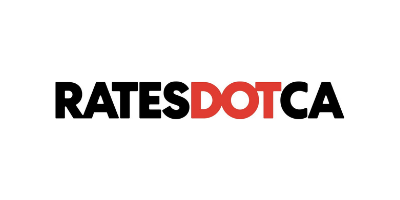We all have bills to pay. But what would happen if all the debt you’ve accumulated was left behind for your family to have to deal with? What if you have dependents who rely on you to pay the mortgage, and you pass away prematurely?
That’s a difficult situation for anyone to have to be in. But rather than leaving things up to chance, you may want to prepare for the potential for this to happen. More specifically, you may want to provide your loved ones with some financial assistance if you ever pass away early on in life while they still depend on you to pay the bills.
Find out what happens to your debt when you die.
A life insurance policy can provide you with that peace of mind. In the event that you die, your policy will kick in and cover your debt, according to the coverage amount you take out.
In this article, we’ll go over how to buy a life insurance policy that is appropriate for you and your family and fits well within your budget.
Life Insurance Basics — What You Need To Know
Before you buy into a life insurance policy, you should understand its features and how it works. The following are some of the basic elements of a life insurance policy that you should get familiar with:
Beneficiaries
The beneficiary of a life insurance policy is the individual who is named in the contract and will receive the death benefit when you pass away. You can name one or more persons, a trustee, or an entity as your beneficiary.
Death Benefit
The death benefit is the monetary payout made to the beneficiary of a life insurance policy when the policyholder passes away. It is usually paid out in a lump sum and is tax-free.
Face Value
A life insurance policy has a cash value and a face value. The face value is the actual death benefit and is the amount that is paid out to the policyholder’s beneficiaries.
Cash Value
The cash value of a life insurance policy is the portion that earns interest. It may be available for funds to be withdrawn from or borrowed against.
Claim
An insurance claim is a request by the beneficiary of the policy to the insurance provider for the death benefit when the owner of the policy passes away. It usually requires a death certificate to be supplied before the death benefit is paid out.
How To Determine Your Policy Needs
When settling on a life insurance policy, there are a few factors that should be taken into consideration, including the following.
Type Of Policy
There are various forms of life insurance to choose from, each of which comes with its own unique traits. Consider the following types of life insurance:
Permanent Life Insurance
As the name suggests, permanent life insurance provides lifelong coverage that only expires when you pass away. As long as you keep up with your premiums, you will be protected throughout your entire life. A guaranteed death benefit is provided to your named beneficiaries when you pass away, and the policy typically earns a cash value over time.
The following are some of the common forms of permanent life insurance policies:
- Whole life insurance. This is the most basic type of permanent life insurance that earns a fixed rate of return against its cash value.
- Universal life insurance. The cash value of a universal life insurance policy is tied to a market index and earns interest according to the current market rate.
- Variable life insurance. With this type of life insurance, the cash value is invested in an investment portfolio of your choosing.
- Variable universal life insurance. This is a hybrid life insurance policy that allows you to invest your cash value in certain investments while offering flexible premiums.
- Term to 100. You will have coverage for your entire life with a term to 100 policy, although your premiums will stop after you turn 100. Unlike other types of permanent life insurance policies, this policy does not have a cash value, which makes it more affordable than other permanent life insurance policies.
- Term life insurance. Term life insurance is the simplest and most affordable type of life insurance that has a finite expiry date of anywhere from 5 to 30 years, or up to a certain age. You may be able to renew the policy when it expires, but the premiums would likely be higher.
Coverage Amount
After you’ve determined what type of life insurance policy you want to take out, you will then need to decide how much coverage you would like. More specifically, the death benefit amount is a major factor to consider, which is the amount that will be paid out to your beneficiaries upon your passing. To help you decide the coverage amount you need, consider these factors:
- Your income. Ideally, you’ll want to buy a policy that would be able to replace your income and cover any bills and cost of living for at least 5 years or more.
- Your assets. Assets of value may include your house, car, RRSP account, investments, and so forth. Your policy should be enough to protect these assets, so be sure to add them all up and include that figure to your policy’s coverage.
- Your debt. After you pass away, your debt won’t just disappear. In some cases, your beneficiaries may be stuck paying off your debt. To prevent this from happening, make sure you factor in your debt when determining your coverage amount.
Additional Coverage
Life insurance policies can have ‘riders’ added on to them, which provide additional coverage on top of what the original base policy provides. Some of the riders you may want to purchase include the following:
- Accelerated death benefit. If you have a terminal medical condition, an accelerated death benefit will pay out part of the death benefit before you pass away.
- Critical illness rider. Your policy can pay out a lump sum if you are ever diagnosed with a critical illness. The money can then be used to cover medical treatments, accommodations at home, and so forth.
- Disability income rider. If you become disabled and are no longer able to work, a disability income rider will pay you a monthly cash benefit for a certain amount of time.
- Term conversion rider. This rider allows you to convert your term life insurance policy to a permanent one when it expires.
- Child term rider. This type of rider will cover all your children — both current and future — for an extra low-cost premium. It will pay out a death benefit to your kids and will expire when they turn 21 to 25 years old.
- Return of premium rider. If you live longer than the term of your policy, this rider will reimburse you for any additional premiums paid.
Where Can You Buy Life Insurance?
Life insurance can be bought from a number of entities, including the following:
- Banks
- Insurance companies
- Insurance brokers
- Online insurance providers
Best Life Insurance Providers In Canada
What to Look For in a Life Insurance Company
Before you choose an insurance company to take out a life insurance policy, consider the following traits.
Reviews
A great place to start looking for an insurance company is online. Not only can you check out the actual company’s website, but you can also read real customer reviews on reputable review sites, as well as blog post reviews from professional writers and industry experts who review various insurance companies for Canadian consumers.
Policy Features
Take a look at not only what types of life insurance policies that an insurance company offers, but also the features within each policy. These include things such as premiums, level of protection, cash value component, and tax treatment of policy earnings, to name a few.
Riders
You can add certain riders to your policy, which can add benefits and additional coverage to your policy.
Coverage
You want to make sure that the policy you choose is adequate enough to provide you with the right amount of coverage that your family would need after you pass away. Consider your current income, assets, and debts to see if the coverage will be enough to cover what you are currently responsible for financially.
Claim Process
Find out how easy it is to file a claim with the company, as well as how long it usually takes for claims to be filed and payouts to be provided.
Applying For Life Insurance
In order to take out a life insurance policy, you will need to fill out an application. You’ll need to provide a few pieces of personal information, such as your full name, gender, age, employment, income, and contact information. You may also need to provide proof of your identity, income, and address, which can be found in things like your driver’s license, paystubs, and utility bills.
You will also need to answer several questions about health, such as your height and weight, smoking status, lifestyle, alcohol and/or drug use, health conditions, and family health history.
Your overall health — as well as your age — will play a big role in your life expectancy, which is what insurance providers consider when pricing your policy. The younger and healthier you are, the lower your premiums will be.
Once you’ve completed your application, you may be required to undergo a medical exam, which helps insurance companies verify your health. You may either be required to visit a doctor or nurse, or the company may send a medical professional to your home for the exam. Otherwise, the insurance provider may simply call your primary care physician to obtain the necessary information required.
Some insurance providers offer no-exam policies, but you may find yourself paying more.
Once the application and medical exam have been completed, an underwriter will review your eligibility and assess your risk level, which can take a few days to a few weeks. Once approved, you can sign off on the policy, send it to your insurer, and your policy will take effect. As long as you keep up with your premiums, you will be covered.
Final Thoughts
Having a life insurance policy in place can give you peace of mind knowing that your loved ones will be financially protected in the event of your death. But, there’s a process involved in buying a life insurance policy that you should get familiar with before you make your decision on who to work with and what type of policy you should take out.






